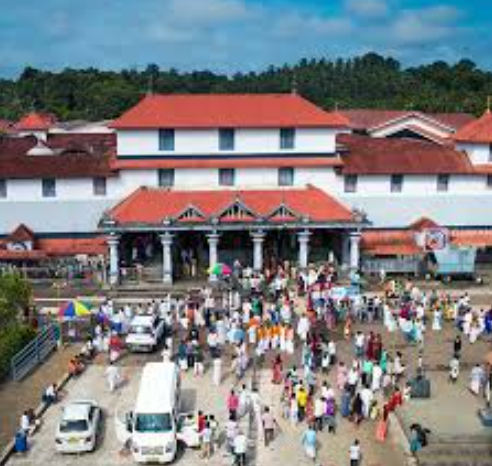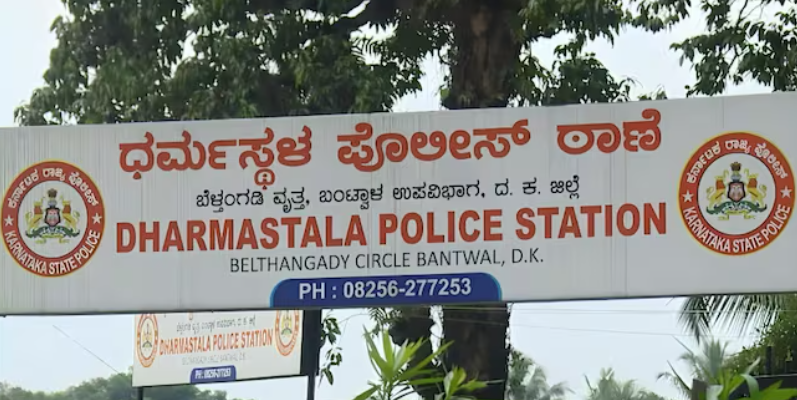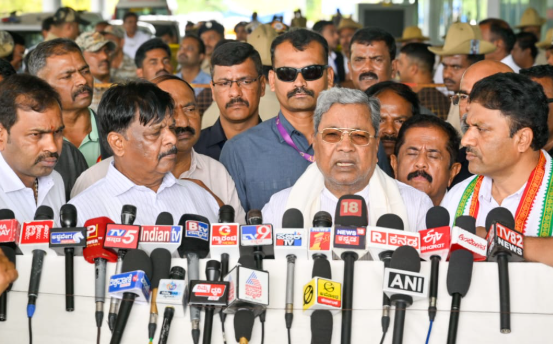Dharmasthala Case Background
A former sanitation worker filed a complaint alleging that between 1995 and 2014 he was forced to bury multiple bodies—many of them women showing signs of sexual assault—in Dharmasthala case, Karnataka. The case gained traction on July 4 when police registered an FIR following a petition filed on behalf of the whistleblower. The witness recorded his statement under Section 183 BNSS on July 11 and even submitted human remains to the court.

Lawyers Allege Confidential info is police Leak
Advocates Dheeraj S.J. and Ananya Gowda claimed that confidential witness statements were leaked to external individuals—particularly a YouTube video featuring specific details that should have remained private. They asserted that the police or someone within the investigation team intentionally passed on sensitive information, jeopardizing both the probe and the witness’s safety.
They petitioned multiple authorities—including the DG & IGP of Karnataka, the Chief Minister, and the Supreme Court—urging an immediate probe into the leak, and emphasized the need for robust witness protection .
Legal Community Rallies for the Whistleblower
Retired Supreme Court Justice V. Gopala Gowda and senior advocates criticized the slow progress of the police inquiry and demanded a Special Investigation Team (SIT) under an independent retired judge. They also sought police protection for the whistleblower and lawyers, warning of possible coercion or threats if the investigation remains stagnant.

Police Response: Denial & Delay
Dakshina Kannada SP Arun K responded by stating that the lawyers had disclosed sensitive information publicly, complicating efforts to guarantee anonymity under the Witness Protection Scheme, 2018. He also claimed that the police lacked essential details about the witness’s location and that no cooperation for protective measures was received.
The police further suggested the whistleblower might abscond post-exhumation and sought court permission for brain mapping and narco-analysis, subject to consent.
Key Tensions & Contrasting Narratives
| Stakeholder | Claim |
|---|---|
| Lawyers | Confidential statements leaked; witness is cooperative and in danger. |
| Justice Gopala Gowda | Investigation slow; witness and legal team need protection; SIT needed. |
| Police | Leak came from legal press releases; witness location unknown; concerned about absconding. |
Lawyers counter that SP’s assertions misrepresent facts—including the music that the witness’s location was unknown, despite providing it via email on July 13 and being recorded on July 14.

Why This Leak Allegation Matters
- Witness Safety at Risk: Exposure of identity increases threat of retaliation.
- Investigation Integrity Undermined: Containment of information is crucial for credible forensic probe.
- Transparency vs Confidentiality Tension: Lawyers argue public disclosure was for safety and pressure to act.
- Public Trust Eroded: Calls for a full SIT and court-monitored investigation intensify as skepticism grows.
Current Status & Next Steps
- Legal teams have filed formal petitions to higher authorities demanding immediate judicial oversight.
- Justice Gopala Gowda and senior advocates continue to push for an SIT with independent leadership, possibly led by DGP Pranab Mohanty .
- The Karnataka government is under growing pressure—especially after Women’s Commission and civil society demands—for impartial action and witness safety measures.
Also Read:Bomb Threat Bangalore: What Happened & What You Should Know
The Dharmasthala case of mass burial has shaken Karnataka’s legal and political landscape, especially after lawyers flagged a serious police leak. Advocates representing the whistleblower claim that confidential witness statements were unlawfully shared with external individuals, including media and YouTubers, endangering both the witness and the integrity of the investigation. The leak has sparked demands for a Special Investigation Team (SIT) led by an independent authority. Legal experts, retired judges, and activists have joined in voicing concerns over the apparent mishandling of sensitive information. With public pressure mounting, the spotlight is now on the Karnataka government to act transparently and decisively.
Final Thought
The Dharmasthala case has evolved into a critical legal flashpoint around police accountability, witness protection, and transparency in sensitive investigations. As lawyers escalate their protests and appeals, the need for an impartial SIT and legal safeguards grows urgent—only time will tell if justice will match the courage shown by the whistleblower.
